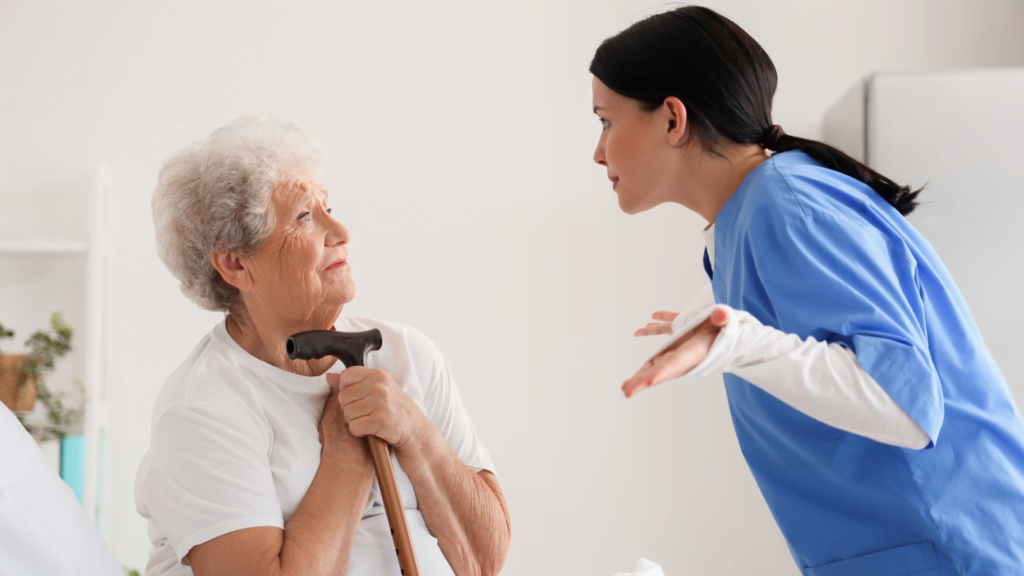Physical abuse in nursing homes is a serious issue that affects many vulnerable seniors. In this article, we will discuss the definition and types of physical abuse, the prevalence of such abuse in nursing homes, and the warning signs to look out for.
We will also explore the actions to take if you suspect physical abuse, as well as tips for preventing such abuse from happening in the first place. Stay informed and learn how to protect your loved ones in nursing homes.
Understanding Physical Abuse in Nursing Homes
Understanding physical abuse in nursing homes is crucial for safeguarding the well-being of the elderly residents who rely on these facilities for care and support.
In nursing homes, physical abuse can take various forms, ranging from direct physical harm to neglect that results in harm to the residents. Signs of physical abuse can include unexplained bruises, abrasions, fractures, or behavioral changes such as fearfulness or withdrawal. It is essential to recognize that elderly individuals are particularly vulnerable to abuse due to factors such as physical frailty, cognitive impairment, or social isolation.
Failure to address or report instances of physical abuse can have severe consequences on the mental and physical health of the victims. By raising awareness, implementing preventive measures, and fostering a culture of accountability, we can work towards creating safer environments for our aging population.
Definition and Types of Physical Abuse
Physical abuse in nursing homes encompasses various forms of harm inflicted on elderly residents, including hitting, pushing, or restraining them against their will.
These actions can lead to serious physical injuries such as bruises, fractures, or even internal trauma. Plus the visible scars, victims of physical abuse may also suffer from emotional distress and psychological trauma.
It is essential for caregivers and family members to be vigilant for signs of abuse like unexplained injuries, sudden behavioral changes, or reluctance to be alone with certain staff members. Understanding the detrimental effects of physical abuse on vulnerable elderly individuals is crucial to protecting their well-being and ensuring their safety in nursing homes.
Prevalence of Physical Abuse in Nursing Homes
The prevalence of physical abuse in nursing homes highlights the disturbing reality faced by many elderly individuals who are subjected to mistreatment and harm within these supposed places of care and safety.
According to the National Center on Elder Abuse, approximately 1 in 10 elders experience some form of abuse in nursing homes. This alarming statistic underlines the urgent need to address the systemic issues contributing to such mistreatment.
Various risk factors have been identified, including understaffing, inadequate training of personnel, and lack of regulatory oversight. These factors create an environment where vulnerable seniors are more susceptible to abuse.
Preventive measures are crucial to combat elder abuse in nursing homes. Education campaigns, regular monitoring, and stringent protocols can help safeguard the well-being of residents and prevent future incidents of abuse.
Warning Signs of Physical Abuse in Nursing Homes
Recognizing the warning signs of physical abuse in nursing homes is essential for detecting and addressing instances of mistreatment or harm inflicted on elderly residents.
These signs can manifest in various ways, such as unexplained bruises, welts, or fractures. In addition, sudden changes in behavior, like increased agitation or withdrawal, may also point towards possible abuse. Neglect in basic living conditions, such as poor hygiene, lack of necessary medical care, or inadequate nutrition, can be indicative of a larger issue at hand. It is crucial for family members, caregivers, and staff to stay vigilant and responsive to any red flags that may suggest abuse, ensuring the safety and well-being of the elderly population in nursing homes.
Unexplained Injuries or Bruises
Unexplained injuries or bruises on an elderly individual in a nursing home may signify underlying physical abuse or mistreatment that requires immediate attention and investigation.
This is a crucial indicator that should never be overlooked. By being vigilant and observant of any unusual marks or wounds on the vulnerable residents, caregivers can potentially prevent further harm and ensure their well-being. Examples of these injuries could range from unexplained fractures, cuts, burns, to persistent bedsores.
Thorough documentation of these signs is paramount as it serves as concrete evidence when reporting suspicions of abuse to the appropriate authorities. Proper documentation aids in conducting a detailed investigation, leading to the protection of the elderly inhabitants.
Changes in Behavior or Mood
Changes in behavior or mood, such as sudden withdrawal, anxiety, or agitation, among elderly residents of nursing homes can indicate possible emotional distress or physical abuse that warrants investigation and intervention.
It is crucial to recognize and understand the various signs that may imply physical abuse, as they are not always immediately apparent. For instance, unexplained injuries, bruises, or burns without plausible explanations could be indicators of abuse.
In addition, changes in eating habits, disruptions in sleep patterns, or unexplained weight loss may draw attention to underlying issues that need to be addressed. Frequent unexplained illnesses or injuries, particularly if the explanations provided are inconsistent or seem implausible, raise red flags that cannot be ignored.
Fear or Anxiety Around Caregivers
The presence of fear or anxiety exhibited by elderly residents in nursing homes towards their caregivers can be a telling sign of potential mistreatment or abuse that necessitates immediate attention and investigation.
When elderly residents display fear or anxiety, it can manifest through various behavioral cues like withdrawal, agitation, or a reluctance to interact with specific caregivers.
These emotions could indicate a lack of trust, discomfort, or even distress caused by abusive behaviors.
Recognizing these signs is crucial to protect vulnerable individuals and ensure their well-being.
By fostering an environment where residents feel safe and supported to report any form of mistreatment, we can help break the cycle of abuse and promote a culture of accountability.”
Unexplained Weight Loss or Dehydration
Unexplained weight loss or dehydration in elderly residents of nursing homes can be indicative of neglect or physical abuse, necessitating thorough investigation and intervention to ensure the well-being of the individuals.
Monitoring nutritional and hydration status plays a crucial role in safeguarding the health and safety of vulnerable elderly individuals. Changes in weight or signs of dehydration can often be early warning signs of mistreatment. It is essential for caregivers and healthcare professionals to remain vigilant in observing these indicators, as neglect can have serious consequences on the overall well-being of residents. Timely detection and appropriate action are imperative in preventing further harm and ensuring a safe and supportive environment for the elderly population in care facilities.
Poor Living Conditions
Poor living conditions in nursing homes, characterized by unsanitary environments, inadequate care, or lack of basic necessities, can serve as visible signs of potential physical abuse or neglect towards the residents.
When neglect or abuse occurs, the repercussions can be severe, compromising the physical health and emotional well-being of the vulnerable elderly population. For instance, bedsores, malnutrition, dehydration, and infections may arise from inadequate hygiene practices or improper medical attention. In some cases, residents may endure social isolation or lack of mental stimulation due to understaffing, leading to depression or cognitive decline.
It is imperative for regulatory bodies, family members, and caregivers to conduct regular assessments of nursing home facilities to ensure compliance with standards for cleanliness, safety, and staff-to-resident ratios. By promptly addressing substandard conditions, individuals can protect the dignity and rights of the elderly residing in such facilities.
Actions to Take if You Suspect Physical Abuse
Taking swift and decisive Actions if You Suspect Physical Abuse in a nursing home is crucial to ensuring the safety and well-being of the elderly residents under such care.
Documenting and reporting suspected abuse incidents should be the initial step, ensuring thorough documentation of observations, conversations, injuries, and any other relevant information. It is essential to maintain accuracy and objectivity in these records, as they may serve as crucial evidence in investigations and legal proceedings.
Seeking medical attention for victims is paramount to address any physical injuries and ensure their health and safety. Encourage victims to visit healthcare providers for thorough evaluations and documentation of injuries, which can also help establish a clear link between the abuse and its consequences.
Engaging with adult protective services can provide additional support and resources for victims of abuse. These agencies specialize in investigating cases of mistreatment and can offer guidance on legal options and protective measures to prevent further harm.
Consulting legal counsel is advisable to explore legal remedies and potential actions against perpetrators of abuse. An attorney specializing in elder abuse can offer valuable guidance on navigating the legal system, protecting victims’ rights, and pursuing justice.
Document and Report the Incidents
Documenting and reporting suspected incidents of physical abuse in nursing homes is crucial for initiating investigations, protecting victims, and holding perpetrators accountable for their actions.
Thorough documentation serves as the foundation for addressing elder mistreatment effectively. By accurately recording dates, descriptions, and any visible signs of abuse, caregivers create a detailed trail that can aid authorities in their investigations. Including factual evidence in these records is paramount to proving cases of mistreatment and ensuring justice for vulnerable seniors. Prompt reporting to appropriate agencies, such as Adult Protective Services or law enforcement, is essential to prevent further harm and provide needed support to the abused individual, resulting in a safer environment within nursing homes.
Seek Medical Attention for the Victim
Seeking immediate medical attention for victims of physical abuse in nursing homes is essential to address injuries, assess well-being, and provide necessary care and support for the affected individuals.
Medical intervention plays a crucial role in not only treating visible injuries but also in uncovering potential underlying health issues resulting from abuse.
A comprehensive medical evaluation can help in documenting injuries, collecting evidence, and ensuring that the victims receive appropriate treatment and follow-up care.
By prioritizing prompt medical care, healthcare providers can contribute to safeguarding the well-being and safety of elderly residents living in nursing homes, and assist in the prevention and intervention of any further instances of abuse.
Contact Adult Protective Services
Contacting Adult Protective Services when someone suspects physical abuse in nursing homes is a critical step in ensuring the safety and well-being of elderly individuals who may be at risk or experiencing mistreatment.
Adult Protective Services play a vital role in investigating and responding to reports of elder abuse. They are trained professionals who are equipped to handle these sensitive situations with care and urgency. When someone reaches out to Adult Protective Services with concerns regarding potential abuse or neglect, the agency will thoroughly assess the situation, provide necessary interventions, and work towards securing a safe environment for the affected individual.
It is important to remember that contacting Adult Protective Services does not mean immediate removal from the home or facility. The agency prioritizes the well-being of the elderly individual while also respecting their autonomy and right to make decisions about their care.
Consult with an Attorney
Consulting with an attorney experienced in elder law and nursing home abuse can provide valuable legal guidance and advocacy for victims of mistreatment and their families seeking justice and accountability.
Legal representation in cases of elder abuse serves as a crucial resource for victims to navigate the complex legal system and ensure their rights are protected.
- One of the key benefits of seeking legal help is gaining access to expert advice on the available legal options and the best course of action.
- Legal representation can assist in gathering evidence, filing legal claims, negotiating settlements, or representing the victim in court.
Having a skilled lawyer on your side can significantly increase the chances of achieving a favorable outcome and holding the responsible parties accountable for their actions.
Preventing Physical Abuse in Nursing Homes
Preventing physical abuse in nursing homes requires a proactive approach that involves research, vigilance, and advocacy to safeguard the rights and well-being of elderly residents in care facilities.
Researching nursing homes thoroughly before placement is crucial to ensure that the environment is safe and conducive to the well-being of residents. By advocating for resident rights, individuals can help raise awareness of the importance of respectful and dignified care for the elderly. Actively monitoring the quality of care provided through regular check-ins and communication with staff can help detect and address any potential signs of abuse or neglect promptly.
Researching Nursing Homes Carefully
Careful research and evaluation of nursing homes are essential steps in preventing physical abuse of elderly residents, ensuring they are placed in safe and reputable facilities that prioritize their well-being.
Assessing nursing home quality and safety records is crucial in guaranteeing the comfort and security of those in need of care. Understanding the staff credentials and expertise within these establishments can provide insight into the level of care and attention residents can expect to receive.
When choosing a suitable care facility, it is advisable to consider factors such as staff-to-resident ratios, types of services offered, cleanliness of the environment, and overall atmosphere. Conducting thorough research and due diligence before selecting a nursing home is essential in safeguarding elderly individuals from potential mistreatment and ensuring they receive the quality care they deserve.
Regularly Visiting and Checking on Loved Ones
Regular visits and check-ins with loved ones residing in nursing homes serve as critical preventive measures against physical abuse, allowing families to monitor care, assess living conditions, and address any concerns promptly.
Being actively involved in the caregiving process also fosters a sense of emotional support and security for elderly individuals, making them feel valued and connected to their families. To effectively monitor the well-being of a loved one in a care facility, families can establish a routine communication schedule with the staff, participate in care planning meetings, and ask for regular updates on their relative’s health and daily activities. Building trust with the caregivers and facility staff is essential for maintaining open communication channels and ensuring that the residents’ needs are met with compassion and diligence.
Reporting Any Suspected Abuse Immediately
Promptly reporting any suspicions or concerns of abuse in nursing homes is crucial for preventing further harm and addressing potential instances of mistreatment before they escalate or cause lasting damage.
When abuse suspicions are not reported promptly, vulnerable individuals may continue to suffer in silence, leading to increased risk and severity of abuse. Immediate reporting is a powerful tool in safeguarding the well-being of residents and ensuring that appropriate actions are taken swiftly. By reporting to the authorities, management, or elder abuse hotlines, concerned individuals can initiate investigations, interventions, and support services that can potentially rescue victims and hold perpetrators accountable.
Advocating for Resident Rights
Advocating for the rights and dignity of nursing home residents is a key component of preventing physical abuse and ensuring that elderly individuals receive the compassionate care and respect they deserve.
Resident advocacy plays a crucial role in upholding ethical standards within care facilities and safeguarding the well-being of vulnerable individuals. Through active involvement in advocating for resident rights, families, caregivers, and community members can collectively create a supportive environment that prioritizes the needs and preferences of residents.
Empowering residents to voice their concerns and preferences leads to increased autonomy and a sense of control over their living situations. By respecting these rights and preferences, care providers not only enhance the quality of life for residents but also build trust and foster meaningful relationships.
Frequently Asked Questions
What is physical abuse in nursing homes?
Physical abuse in nursing homes refers to any intentional act of physical harm, injury, or pain inflicted upon a nursing home resident by a caregiver or staff member. This can include hitting, pushing, slapping, or using excessive force during restraints or transfers.
What are some warning signs of physical abuse in nursing homes?
Some common warning signs of physical abuse in nursing homes include unexplained bruises, cuts, or injuries, sudden changes in behavior or mood, and an overall decline in physical health. Other red flags may include a reluctance to speak in front of staff, fear of a particular caregiver, or unusual withdrawal from activities.
What should I do if I suspect physical abuse in a nursing home?
If you suspect physical abuse in a nursing home, it is important to report your concerns immediately. Contact the facility’s management or the local Adult Protective Services agency. You can also file a complaint with the state’s long-term care ombudsman. It is crucial to document any signs of abuse and gather witness statements if possible.
What actions can be taken to prevent physical abuse in nursing homes?
To prevent physical abuse in nursing homes, facilities should have strict policies and procedures in place for staff training and supervision. They should also have a system for reporting and investigating any accusations of abuse. Families can also play a role by visiting their loved ones frequently and being aware of any changes in their physical or emotional well-being.
Are there any legal consequences for physical abuse in nursing homes?
Yes, there are legal consequences for physical abuse in nursing homes. In addition to criminal charges, nursing homes can face civil lawsuits for neglect or abuse of their residents. This can result in fines, loss of licensure, and other legal penalties. Individuals found guilty of physical abuse can also face criminal charges and potential jail time.
What support is available for victims of physical abuse in nursing homes?
Victims of physical abuse in nursing homes may be eligible for compensation and support through various programs and resources. This can include financial assistance for medical care, counseling services, and legal assistance for pursuing justice against the abuser and the facility. There are also advocacy organizations that provide support and resources for victims and their families.





